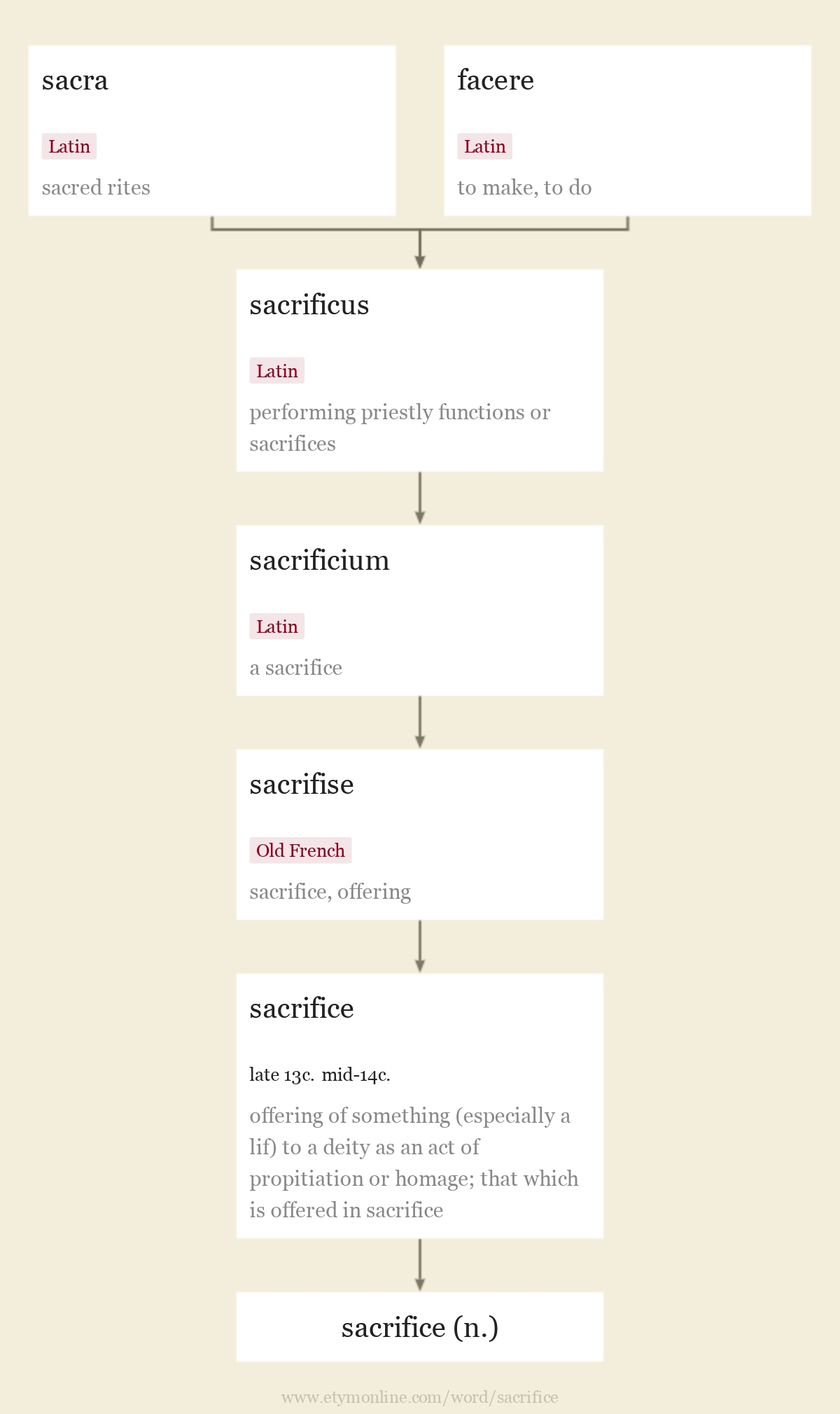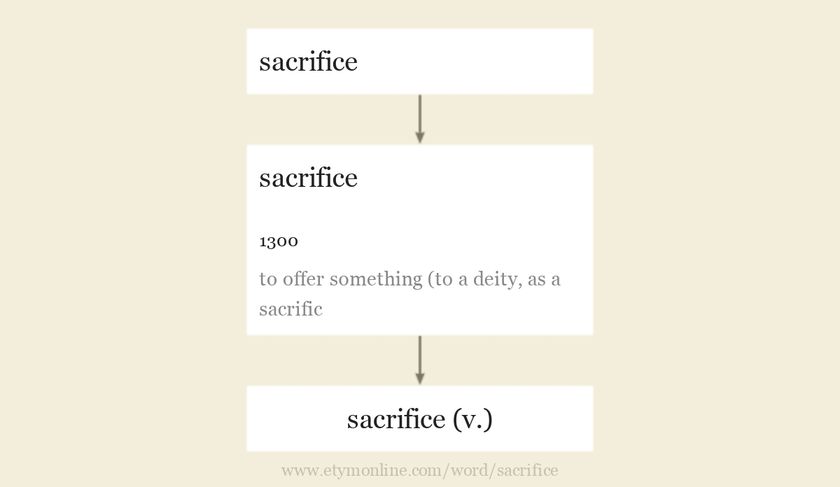| 词源 |
sacrifice n.late 13c., "the offering of something (especially a life) to a deity as an act of propitiation, homage, etc.;" mid-14c., "that which is offered (to a deity) in sacrifice," from Old French sacrifise "sacrifice, offering" (12c.), from Latin sacrificium, from sacrificus "performing priestly functions or sacrifices," etymologically "a making sacred," from sacra "sacred rites" (properly neuter plural of sacer "sacred;" see sacred) + combining form of facere "to make, to do" (from PIE root *dhe- "to set, put"). Originally especially of Christ's propitiatory offering of himself for the world. Latin sacrificium is glossed in Old English by ansegdniss. The general sense of "act of giving up a desirable thing for a higher object or to a more pressing claim," also "something given up for the sake of another" is recorded from 1590s. Baseball sense of "hit made by the batter not to get himself to base but to enable another player to advance" is by 1880. sacrifice v. c. 1300, "to offer (something, to a deity) as an expression of thanks, devotion, penitence, etc., from sacrifice (n.). The meaning "surrender, give up, suffer to be lost for the sake of something else" is from 1706. The intransitive sense of "offer a sacrifice, make offerings to a deity" is from late 13c. Related: Sacrificed; sacrificing. It has driven out sacrify "offer a sacrifice to a deity, perform sacrificial rites" (Middle English sacrifien, c. 1300), from Old French sacrefier, sacrifier. Ruskin, meeting sacrify in Philip Sidney, called this form "the right one, and to be restored to pure English, as we say magnify, glorify, and not magnifice, glorifice." updated on November 30, 2022 |

